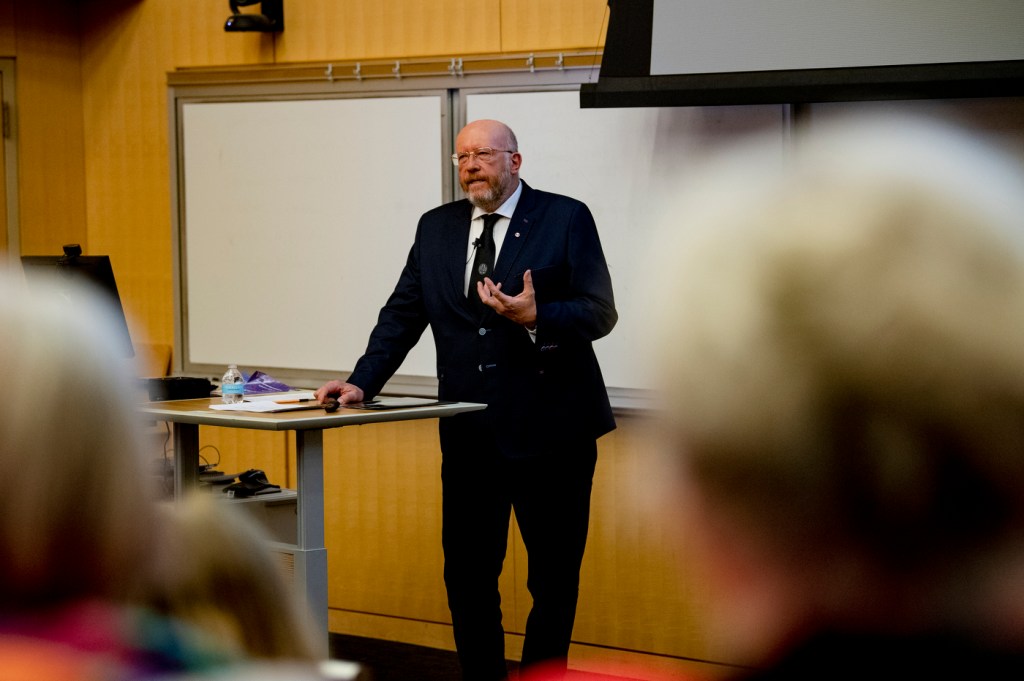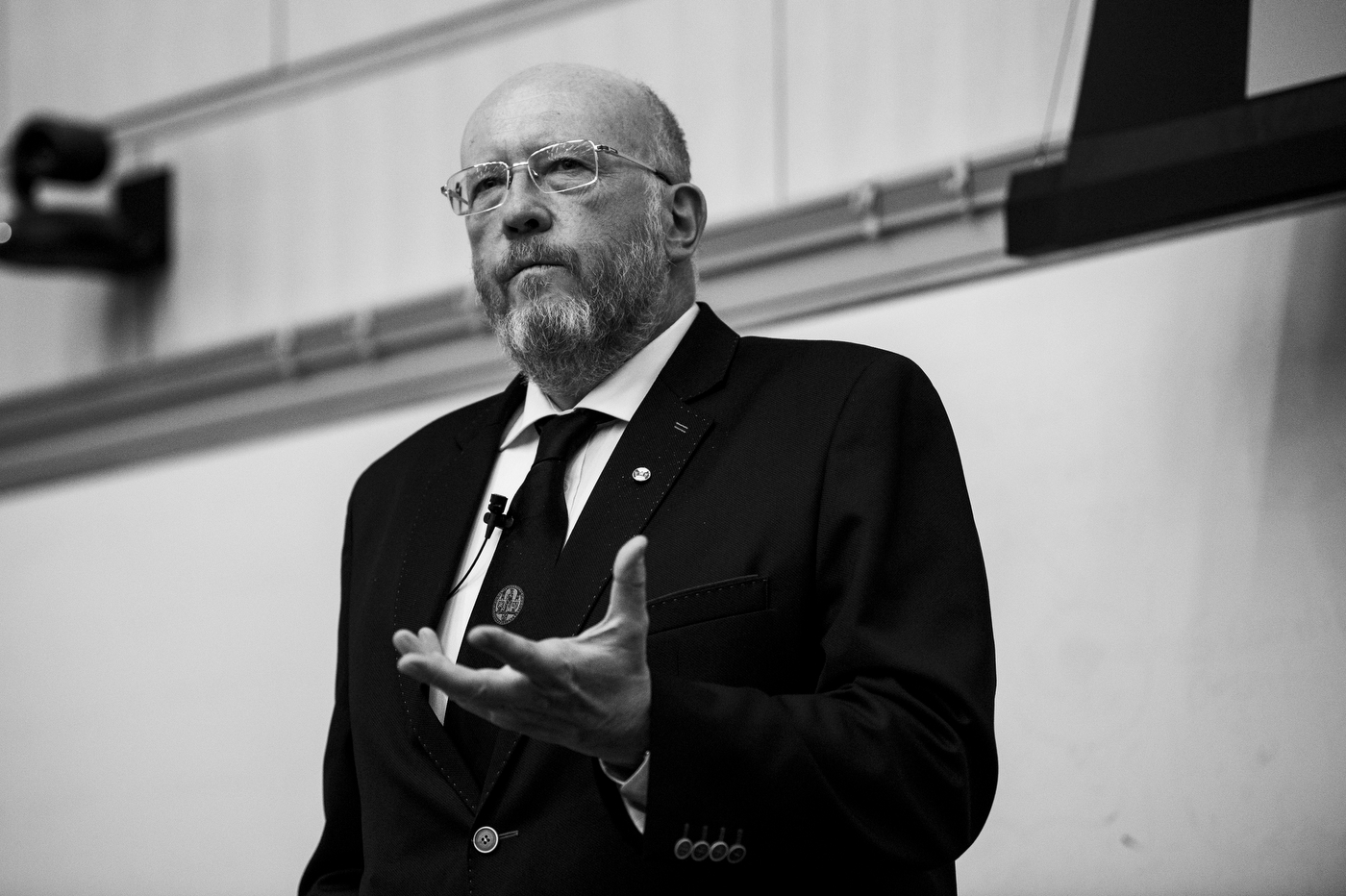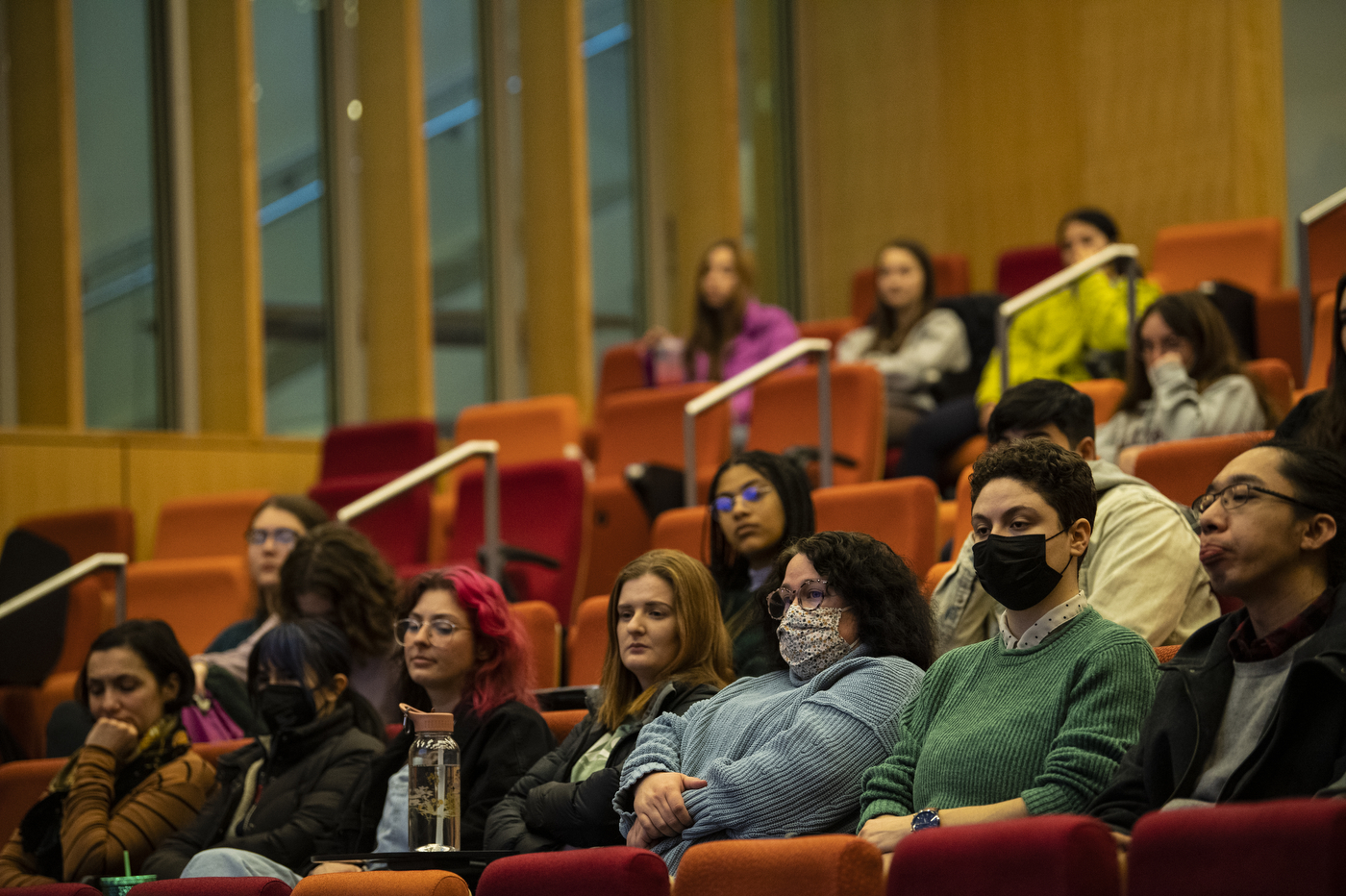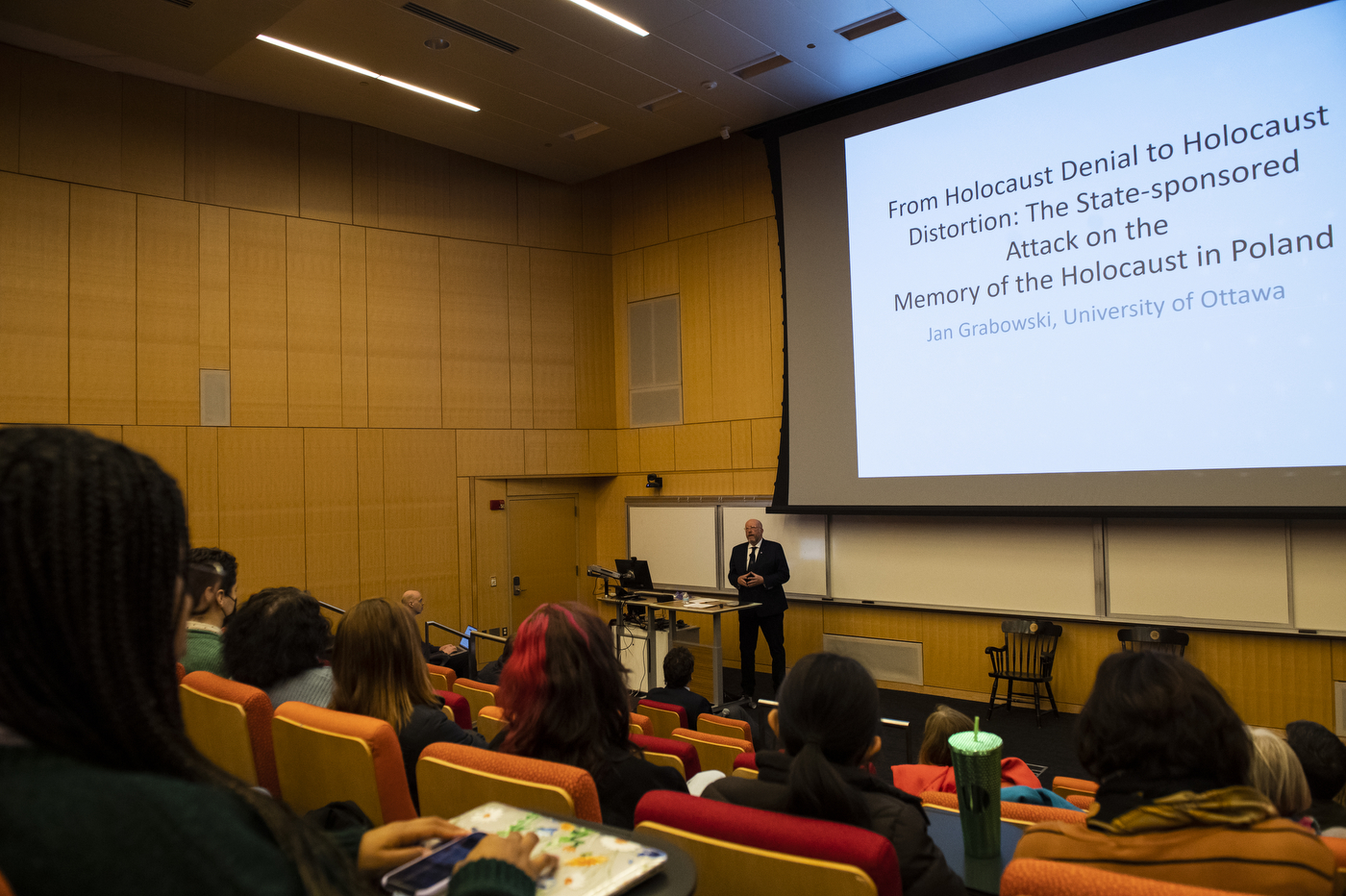A more insidious form of Holocaust denial emerges

Treblinka is the site of a Nazi extermination camp in occupied Poland where an estimated 900,000 Jews were murdered. On Thursday night at Northeastern, Jan Grabowski recalled a visit last November to the meadow in his native Poland where the gas chambers once stood.
“It was a very sad day with clouds crying out and the rain dripping,” Grabowski told a rapt audience. “I looked at the ground under my feet, and I saw tiny white specks. Little pebbles, I thought. But they were too small. They actually were pieces of unburned bones which come to the surface after every rain.”
“After the 80 years,” he said of the generations gone by since World War II, “it is a place where the ashes, the bodies, of hundreds of thousands of people were burned and later buried. These remnants, these ashes, they come to the surface. So this is a place where you can feel history touching you with its cold hand or grabbing you by your throat. Treblinka has one meaning and this is the memory of the nearly 1 million people who had the chance to live, and this chance has been denied to them.”


Grabowski, a professor of history at the University of Ottawa and a fellow of the Royal Society of Canada, went on to tell the compelling and haunting story of a book he researched and wrote on the Holocaust in Poland—a historical project that put him and his co-author on trial for defamation.
Grabowski’s personal journey on behalf of truth resonates with the ongoing dynamics of the Russian war on Ukraine, said Simon Rabinovitch, the Stotsky Associate Professor in Jewish Historical and Cultural Studies at Northeastern, who introduced the 29th Annual Robert Salomon Morton Lecture.
Grabowski’s presentation, “From Holocaust Denial to Holocaust Distortion: The State-sponsored Attack on the Memory of the Holocaust in Poland,” served as the keynote event of Holocaust and Genocide Awareness Week at Northeastern.

“This cynical weaponization of the past by Russia and Russian propagandists—defining the current Ukrainian state preposterously as a Nazi regime—has pushed the past to the center of this conflict, and really has demonstrated just how alive these questions of memory and memorialization and the law are still present in European life and society,” Rabinovitch said.
Grabowski and co-author Barbara Engelking were found guilty by a Warsaw district court of defaming the late mayor of a Polish village in their heavily-researched 2018 book, “Night Without End: The Fate of Jews in Selected Counties of Occupied Poland.” The two-volume history revealed testimony that the mayor had betrayed Jews who had been hiding from the Nazis, resulting in 22 deaths.
Among the European Jews who were murdered in the Holocaust, half were killed in Poland, according to The New Yorker. But that historical fact has been undermined by a revisionist narrative, said Grabowski—a rendering that casts Poland as a valiant defender of Jews during World War II, and portrays Poles as having suffered as horribly as the Jewish victims of the Final Solution.
Grabowski shared polling data showing that 40% of Poles believe that historians who write of Polish complicity in the Holocaust should be brought to trial. This point of view has been supported by Poland’s populist Law and Justice Party.
“The lawsuit wanted to introduce into Polish civil litigation a new concept … the right to national pride, the right to national identity,” Grabowski said. “We were told that whenever any reader of our book would feel that his or her national pride has been hurt, he or she could sue historians in court.”
A court of appeals overturned the guilty verdict, said Grabowski.
“It took some major courage,” Grabowski said of the latter ruling, which was condemned by Poland’s minister of justice as “a coup d’état,” according to Grabowski.
There was a point some time ago when Grabowski believed that Holocaust denial was a “spent force, intellectually speaking.”
“And then the situation started to evolve along different lines,” said Grabowski, author of “Hunt for the Jews: Betrayal and Murder in German-Occupied Poland,” which received the Yad Vashem International Book Prize for 2014. “Holocaust denial has been largely replaced by a different kind of threat, which is much more insidious intellectually.”
The new threat is “Holocaust distortion,” Grabowski said.
“It is very much a cottage industry propelled by strange people, we can say,” Grabowski said. “Holocaust distortion is a state-financed and state-approved methodology of distorting our understanding of history, or denying the history itself.”
The events in Poland should not be viewed as an isolated incident, Grabowski insisted.
“We are nearing this Orwellian vision that who controls the present, controls the past,” he said. “We cannot take for granted even things which are so firmly established.”
Historians have long wondered whether the history of the Holocaust might be further undermined when the last of the survivors have passed on, noted Grabowski.
“Well, a vision of this can be seen through the prism of Eastern Europe or Poland,” he said. “It is a new kind of distortion which can threaten the commemoration of the Holocaust, and what happens depends to a large degree on how we all shall react to it—whether we will decide that this is not an important issue.
“If you look at today’s manipulation that is going on during the conflict in Ukraine, and how the Russian society is exposed to fundamental untruths, you will see that this has an existential meaning to all of us.”
For media inquiries, please contact media@northeastern.edu.






